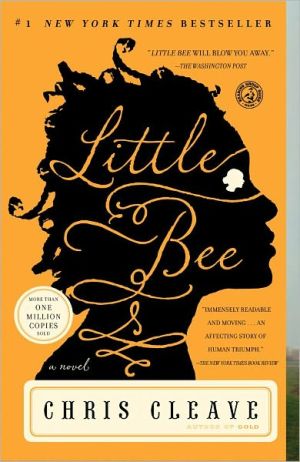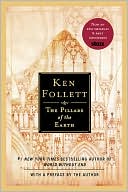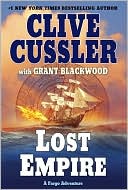Friends, Lovers, Chocolate (Isabel Dalhousie Series #2)
ISABEL DALHOUSIE - Book 2\ \ Nothing captures the charm of Edinburgh like the bestselling Isabel Dalhousie series of novels featuring the insatiably curious philosopher and woman detective. Whether investigating a case or a problem of philosophy, the indefatigable Isabel Dalhousie, one of fiction’s most richly developed amateur detectives, is always ready to pursue the answers to all of life’s questions, large and small.\ In this delightful second installment in Alexander McCall...
Search in google:
From New York Times best-selling author Alexander McCall Smith, creator of the sensationally popular No. 1 Ladies' Detective Agency series, comes the second mystery starring the ever-ethical and undeniably charming Isabel Dalhousie. Working at her niece's deli, Isabel notices a customer named Ian, who is avoiding chocolate—doctors says it's bad for the new heart he recently received. Ian is haunted by memories he can't place. Could his new heart be the cause?Publishers WeeklyThe second installment of McCall Smith's Sunday Philosophy Club series sports a charmingly meandering plot and winningly hyperverbal characters-no surprise to fans of Isabel Dalhousie's debut, The No. 1 Ladies Detective Agency books, or any of McCall Smith's 50-plus titles. Once again, Edinburgh's Dalhousie, intrepid editor of a philosophy journal, finds herself analyzing other people's problems when asked to fill in for her niece Cat, at Cat's gourmet food shop-cum-delicatessen. At the shop, Isabel meets Ian, who is haunted by visions of a man he comes to believe must be the murdered donor of his transplanted heart. As McCall Smith lovingly takes Isabel sleuthing across Edinburgh, the donor's stepfather (a man Ian has never seen) turns out to look much like the man of Ian's nightmares. Meanwhile, Cat's romantic rejects find their way, via the shop, into Isabel's social set, including former major beau Jamie, a classical musician who, though 15 years younger, becomes Isabel's confidant. A delicious mix of the unlikely and the tried-and-true, this latest cozy from an undisputed master will make readers feel just that. 9-city author tour. (Sept.) Copyright 2005 Reed Business Information.
Chapter one\ The man in the brown Harris tweed overcoat—double-breasted with three small leather-covered buttons on the cuffs—made his way slowly along the street that led down the spine of Edinburgh. He was aware of the seagulls which had drifted in from the shore and which were swooping down onto the cobblestones, picking up fragments dropped by somebody who had been careless with a fish. Their mews were the loudest sound in the street at that moment, as there was little traffic and the city was unusually quiet. It was October, it was mid-morning, and there were few people about. A boy on the other side of the road, scruffy and tousle-haired, was leading a dog along with a makeshift leash—a length of string. The dog, a small Scottish terrier, seemed unwilling to follow the boy and glanced for a moment at the man as if imploring him to intervene to stop the tugging and the pulling. There must be a saint for such dogs, thought the man; a saint for such dogs in their small prisons.\ The man reached the St. Mary’s Street crossroads. On the corner on his right was a pub, the World’s End, a place of resort for fiddlers and singers; on his left, Jeffrey Street curved round and dipped under the great arch of the North Bridge. Through the gap in the buildings, he could see the flags on top of the Balmoral Hotel: the white-on-blue cross of the Saltire, the Scottish flag, the familiar diagonal stripes of the Union Jack. There was a stiff breeze from the north, from Fife, which made the flags stand out from their poles with pride, like the flags on the prow of a ship ploughing into the wind. And that, he thought, was what Scotland was like: a small vessel pointed out to sea, a small vessel buffeted by the wind.\ He crossed the street and continued down the hill. He walked past a fishmonger, with its gilt fish sign suspended over the street, and the entrance to a close, one of those small stone passages that ran off the street underneath the tenements. And then he was where he wanted to be, outside the Canongate Kirk, the high-gabled church set just a few paces off the High Street. At the top of the gable, stark against the light blue of the sky, the arms of the kirk, a stag’s antlers, gilded, against the background of a similarly golden cross.\ He entered the gate and looked up. One might be in Holland, he thought, with that gable; but there were too many reminders of Scotland—the wind, the sky, the grey stone. And there was what he had come to see, the stone which he visited every year on this day, this day when the poet had died at the age of twenty-four. He walked across the grass towards the stone, its shape reflecting the gable of the kirk, its lettering still clear after two hundred years. Robert Burns himself had paid for this stone to be erected, in homage to his brother in the muse, and had written the lines of its inscription: This simple stone directs Pale Scotia’s way/To pour her sorrows o’er her poet’s dust.\ He stood quite still. There were others who could be visited here. Adam Smith, whose days had been filled with thoughts of markets and economics and who had coined an entire science, had his stone here, more impressive than this, more ornate; but this was the one that made one weep.\ He reached into a pocket of his overcoat and took out a small black notebook of the sort that used to advertise itself as waterproof. Opening it, he read the lines that he had written out himself, copied from a collection of Robert Garioch’s poems. He read aloud, but in a low voice, although there was nobody present save for him and the dead:\ Canongait kirkyaird in the failing year\ Is auld and grey, the wee roseirs are bare,\ Five gulls leem white agin the dirty air.\ Why are they here? There’s naething for them here\ Why are we here oursels?\ Yes, he thought. Why am I here myself? Because I admire this man, this Robert Fergusson, who wrote such beautiful words in the few years given him, and because at least somebody should remember and come here on this day each year. And this, he told himself, was the last time that he would be able to do this. This was his final visit. If their predictions were correct, and unless something turned up, which he thought was unlikely, this was the last of his pilgrimages.\ He looked down at his notebook again. He continued to read out loud. The chiselled Scots words were taken up by the wind and carried away:\ Strang, present dool\ Ruggs at my hairt. Lichtlie this gin ye daur:\ Here Robert Burns knelt and kissed the mool.\ Strong, present sorrow\ Tugs at my heart. Treat this lightly if you dare:\ Here Robert Burns knelt and kissed the soil.\ He took a step back. There was nobody there to observe the tears which had come to his eyes, but he wiped them away in embarrassment. Strang, present dool. Yes. And then he nodded towards the stone and turned round, and that was when the woman came running up the path. He saw her almost trip as the heel of a shoe caught in a crack between two paving stones, and he cried out. But she recovered herself and came on towards him, waving her hands.\ “Ian. Ian.” She was breathless. And he knew immediately what news she had brought him, and he looked at her gravely. She said, “Yes.” And then she smiled, and leant forward to embrace him.\ “When?” he asked, stuffing the notebook back into his pocket.\ “Right away,” she said. “Now. Right now. They’ll take you down there straightaway.”\ They began to walk back along the path, away from the stone. He had been warned not to run, and could not, as he would rapidly become breathless. But he could walk quite fast on the flat, and they were soon back at the gate to the kirk, where the black taxi was waiting, ready to take them.\ “Whatever happens,” he said as they climbed into the taxi, “come back to this place for me. It’s the one thing I do every year. On this day.”\ “You’ll be back next year,” she said, reaching out to take his hand.\ On the other side of Edinburgh, in another season, Cat, an attractive young woman in her mid-twenties, stood at Isabel Dalhousie’s front door, her finger poised over the bell. She gazed at the stonework. She noticed that in parts the discoloration was becoming more pronounced. Above the triangular gable of her aunt’s bedroom window, the stone was flaking slightly, and a patch had fallen off here and there, like a ripened scab, exposing fresh skin below. This slow decline had its own charms; a house, like anything else, should not be denied the dignity of natural ageing—within reason, of course.\ For the most part, the house was in good order; a discreet and sympathetic house, in spite of its size. And it was known, too, for its hospitality. Everyone who called there—irrespective of their mission—would be courteously received and offered, if the time was appropriate, a glass of dry white wine in spring and summer and red in autumn and winter. They would then be listened to, again with courtesy, for Isabel believed in giv- ing moral attention to everyone. This made her profoundly egalitarian, though not in the non-discriminating sense of many contemporary egalitarians, who sometimes ignore the real moral differences between people (good and evil are not the same, Isabel would say). She felt uncomfortable with moral relativists and their penchant for non-judgementalism. But of course we must be judgemental, she said, when there is something to be judged.\ Isabel had studied philosophy and had a part-time job as general editor of the Review of Applied Ethics. It was not a demanding job in terms of the time it required, and it was badly paid; in fact, at Isabel’s own suggestion, rising production costs had been partly offset by a cut in her own salary. Not that payment mattered; her share of the Louisiana and Gulf Land Company, left to her by her mother—her sainted American mother, as she called her—provided more than she could possibly need. Isabel was, in fact, wealthy, although that was a word that she did not like to use, especially of herself. She was indifferent to material wealth, although she was attentive to what she described, with characteristic modesty, as her minor projects of giving (which were actually very generous).\ “And what are these projects?” Cat had once asked.\ Isabel looked embarrassed. “Charitable ones, I suppose. Or eleemosynary if you prefer long words. Nice word that—eleemosynary . . . But I don’t normally talk about it.”\ Cat frowned. There were things about her aunt that puzzled her. If one gave to charity, then why not mention it?\ “One must be discreet,” Isabel continued. She was not one for circumlocution, but she believed that one should never refer to one’s own good works. A good work, once drawn at- tention to by its author, inevitably became an exercise in self-congratulation. That was what was wrong with the lists of names of donors in the opera programmes. Would they have given if their generosity was not going to be recorded in the programme? Isabel thought that in many cases they would not. Of course, if the only way one could raise money for the arts was through appealing to vanity, then it was probably worth doing. But her own name never appeared in such lists, a fact which had not gone unnoticed in Edinburgh.\ “She’s mean,” whispered some. “She gives nothing away.”\ They were wrong, of course, as the uncharitable so often are. In one year, Isabel, unrecorded by name in any programme and amongst numerous other donations, had given eight thousand pounds to Scottish Opera: three thousand towards a production of Hansel and Gretel, and five thousand to help secure a fine Italian tenor for a Cavalleria Rusticana performed in the ill-fitting costumes of nineteen-thirties Italy, complete with brown-shirted Fascisti in the chorus.
\ From Barnes & NobleThe Barnes & Noble Review\ The ever-inquisitive ethicist Isabel Dalhousie is back, in Alexander McCall Smith's second installment of his wildly popular Sunday Philosophy Club saga -- this time struggling with two very different moral dilemmas of the heart. \ While Isabel is managing the upscale delicatessen of her niece (who is away in Italy attending a wedding), her good friend Jamie, a handsome classical musician 15 years her junior, reveals that he is having an affair with a married woman. Isabel, the general editor of the prestigious Review of Applied Ethics, is faced with a quandary: How should she support Jamie, a beloved friend who until recently was completely enamored of Isabel's niece? While Isabel is contemplating the ethics of love and friendship, she meets a man at the deli: a clinical psychologist named Ian, who has just receieved a heart transplant. When Ian tells Isabel about strange sensations he has been having since the operation -- particularly nightmarish images of a stranger's face -- Isabel vows to figure out if the visions are in fact murderous memories somehow connected to the donor's heart. Both problems involve "echoes of ownership that persist well after we lose possession."\ Set in Smith's hometown of Edinburgh, Scotland, the meandering and deeply reflective plotlines of Friends, Lovers, Chocolate cover a multitude of intriguing moral issues, including the obligations of true friendship, the theoretical survival of consciousness, cultural identity, the importance (or lack thereof) of personal hygiene, the pitfalls of chocolate, and even the ethics of the buffet bar! Paul Goat Allen\ \ \ \ \ \ Publishers WeeklyThe second installment of McCall Smith's Sunday Philosophy Club series sports a charmingly meandering plot and winningly hyperverbal characters-no surprise to fans of Isabel Dalhousie's debut, The No. 1 Ladies Detective Agency books, or any of McCall Smith's 50-plus titles. Once again, Edinburgh's Dalhousie, intrepid editor of a philosophy journal, finds herself analyzing other people's problems when asked to fill in for her niece Cat, at Cat's gourmet food shop-cum-delicatessen. At the shop, Isabel meets Ian, who is haunted by visions of a man he comes to believe must be the murdered donor of his transplanted heart. As McCall Smith lovingly takes Isabel sleuthing across Edinburgh, the donor's stepfather (a man Ian has never seen) turns out to look much like the man of Ian's nightmares. Meanwhile, Cat's romantic rejects find their way, via the shop, into Isabel's social set, including former major beau Jamie, a classical musician who, though 15 years younger, becomes Isabel's confidant. A delicious mix of the unlikely and the tried-and-true, this latest cozy from an undisputed master will make readers feel just that. 9-city author tour. (Sept.) Copyright 2005 Reed Business Information.\ \ \ Library JournalThe second entry in the "Sunday Philosophy Club" series has precociously curious Isabel Dalhousie and her no-nonsense housekeeper, Grace, in another Scottish caper. Smith lives in Scotland. 11-city author tour. Copyright 2005 Reed Business Information.\ \ \ \ \ School Library JournalAdult/High School-Isabel Dalhousie, the charming and well-intentioned editor of the Review of Applied Ethics, is back. She does not actively seek out trouble, but her inability to ignore those in need has a way of drawing her into peculiar situations. Her adventure begins when she meets Ian, who has recently had a heart transplant and is disturbed by a menacing face that keeps appearing in his memories; he and Isabel wonder whether there is any credence to the theory of cellular memory, and whether Ian could be recalling the person who was responsible for his donor's death. In much the same way that "The No. 1 Ladies' Detective Agency" series opens a door to the dusty roads of Botswana, this one allows readers to experience the long, sunny days of a Scottish summer. The history and charm of Edinburgh are apparent in the detailed descriptions of the cobblestoned streets Isabel walks as she contemplates philosophical questions and attempts to make sense of Ian's issues as well as her own sudden romantic interest in a much younger friend and recent fianc of her niece. The characters and plots are thoughtful and thought-provoking, and will stay with readers well beyond the final page.-Kim Dare, Fairfax County Public Library System, VA Copyright 2005 Reed Business Information.\ \ \ \ \ Kirkus ReviewsGently starchy Edinburgh ethicist Isabel Dalhousie (The Sunday Philosophy Club, 2004) slips into another sedate but vexing mystery. To accommodate her niece Cat, who's been invited to a wedding in Italy, Isabel agrees to supplement her part-time duties as general editor of the Review of Applied Ethics by working for a week in Cat's delicatessen. It's there that she meets Ian, a psychologist who's avoiding chocolate because the doctors tell him it's bad for the heart he recently received from an unknown donor. Ian soon confides that he has more serious troubles than the ban on chocolate. He's been having disturbing visions of an unfamiliar face-a face he suspects his new heart remembers. Quietly inserting herself into his nightmares, Isabel tracks down the likely donor's mother, Rose Macleod, and instantly recognizes in her partner, Graeme Forbes, the face that's been haunting Ian. Is it coincidence, cellular memory or something darker? While she's wondering what to do about her unwelcome discovery, Isabel faces a dilemma considerably closer to home: the possible loss of Cat's ex-boyfriend Jamie, a bassoonist who's become perhaps Isabel's best friend. Both problems edge toward solutions as gradually and believably as Isabel first slid into the problems. The denouement is pure magic. Beneath the slender mystery is a celebration of Isabel's fallible but resolutely ethical approach to life, charming and light but with a refreshingly unapologetic gravitas.\ \








